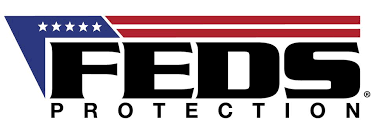sponsor content What's this?

Why Federal Employees Need Professional Liability Insurance
Presented by
FEDS Protection

For various reasons, professional liability exposure has become substantially more prevalent in the last decade. Complaints are a part of your business. Look no further than today’s headlines where every-day federal employees are being pulled into the national spotlight. If your actions or inactions are being questioned, regardless of facts or extenuating circumstances, this era of 24-hour news cycles, political polarization, and social media propaganda is resulting in increased complaints and investigations as well as lawsuits and disciplinary actions.
Employees at Risk
The potential liabilities that exist and the reasons for which federal employees obtain professional liability insurance (PLI) are vastly different. Professional exposures are based on the type of job you have, the position you hold, and your employing agency. While all federal employees are eligible for PLI, special consideration should be given if job duties include:
- protecting our nation's security;
- managing or supervising employees;
- making decisions on public policy or in the interest of the public;
- working directly with the public;
- working in the intelligence community;
- providing law enforcement or security;
- providing HR functions;
- obligating and administering funds or contracts;
- providing medical, financial or other professional services; or
- regulating products, businesses or securities matters.
What Matters
- Political Agendas. You’ve certainly seen a snippet of the impeachment hearings. In this most recent congressional investigation, your State Department brothers and sisters were called to testify about what they did, heard or witnessed. If they didn’t have PLI in place, they had to hire attorneys to counsel and prepare them. These fellow Feds are average, hard-working employees that had no idea how broad, frightening and overwhelming congressional powers are when conducting investigations. These types of investigations are now often used as a game of strategy, where federal employees are the political pawns. Politicians, on both sides, use the investigative process to push political agendas leaving a wake of destruction for federal employees – and this happens much more often than you can possibly imagine.
- Potential Monetary Loss to a Program. The larger the alleged loss or lawsuit, the more scrutiny and media attention, and possibly even political attention, it will receive. If a large loss occurs and doesn’t result in a lawsuit, federal employees are still at risk for OIG, Agency management / misconduct, congressional, or State Board Investigations – and disciplinary action. For example, TIGTA and congressional investigations involving IRS managers and employees can create complex situations that often blindside the employee. They often involve complex constitutional issues that need to be identified and handled appropriately as it is often the case that an IRS employee or manager has unknowingly or unintentionally violated a rule and possibly even a criminal statute. Not every employee receives the same type or amount of training, not every employee has an entirely seasoned and experienced staff, and with the amount of case files processed by all management teams, there are errors made. This, however, does not change the fact that a violation has occurred, or that the job of the TIGTA investigator is to uncover and prosecute violators.
- Regulatory Oversight. If you are a regulatory agency employee, for example, it doesn’t matter what you are regulating – products, businesses, financial and securities matters, nuclear facilities, housing, etc., you are enforcing compliances for an important public policy reason. If it is perceived that you or your agency has failed in its regulatory mission, you can be certain that there will be a demand of accountability from the public, special interest groups, Congress or even within your own agency; and assuming allegations will be automatically dismissed or defended by your agency is a mistake. Sometimes the most well intended civil servant unknowingly or unintentionally violates a civil service or other law, rule or regulation. Having FEDS Protection ensures that a complete legal defense is not cost prohibitive.
- Injury or Death. This doesn’t just apply to the law enforcement and firefighting communities. Federal veterinarians, for example, often face suspensions for negligent performance of duties due to allegations of improper release of infected, contaminated or otherwise improper items in the food supply, including those resulting in recalls. How many do you think had adequate legal representation?
- Media Sensation and Social Media Propaganda. Every single day, there are examples of hard working and dedicated federal employees being put under scrutiny. Just ask any law enforcement officer who has tried to do her job with someone videotaping and chastising her. Ask any AUSA, firefighter, contracting officer, IRS, GSA or EPA employee whose life has been turned upside down starting with an allegation, that lead to media coverage, that led to public anger, that led to lawsuits, investigations, disciplinary – and even criminal proceedings.
What Doesn’t Matter
What doesn’t matter is the whole story. At least not initially, or the months or years until the investigation commences or the case is tried, and all aspects of the investigation or case are presented. Often times, the media coverage of initial allegations is newsworthy for days or weeks or more, yet the final verdict gets just a few minutes of media attention, if at all. For some employees, offices or agencies, the truth doesn’t even matter in the end. The damage is already done. How often do you see the media or politicians apologizing or correcting prior comments or coverage especially when it vilified a defendant or federal worker? For the individual federal employee, what also doesn’t matter, at least initially, is extenuating circumstances. Are you familiar with every regulation, policy and rule of your agency?
It is imperative that you identify your professional vulnerabilities, understand your liability exposures, and take advantage of the protections available to you with FEDS Protection. FEDS President, Tony Vergnetti, was a federal employee prior to founding FEDS Protection. He understands the seriousness of inquiries and hearings involving intelligence and the law enforcement community particularly since 9/11. He understands the adversarial, often confrontational, and sometimes high-profile nature of investigations that are used for political agendas. He knows your vulnerabilities and urges you to understand your exposures and the protections available to you so you can properly prepare and/or defend yourself if you become the next subject or target of an allegation or investigation in the performance of your everyday duties. He established FEDS Protection to go above and beyond – every time. Go ahead, ask around.
For more information about your professional exposures or how to obtain FEDS Protection, call 866.955.FEDS or visit www.fedsprotection.com






